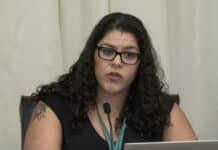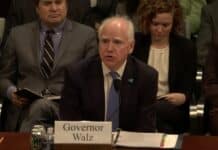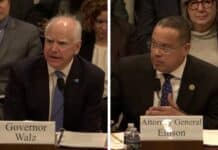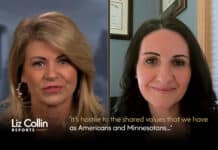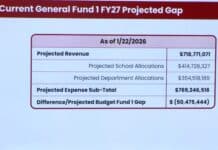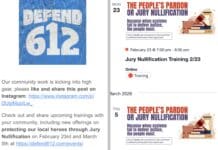ST. PAUL, Minn. – A Dayton-appointed teacher licensing board is seeking to incorporate controversial race and gender training in Minnesota’s teacher licensing requirements.
In 2017, the state legislature passed a bill approving the creation of the Professional Educator Licensing and Standards Board (PELSB) to replace the Board of Teaching for issuing licenses to Minnesota teachers. DFL Gov. Mark Dayton appointed PELSB board members in September, and the new board assumed licensing responsibilities in January. However, not even two months after the change of power, PELSB is already causing controversy by attempting to subvert the legislature and implement new rules on “social justice” training.
Last year, the state legislature added “cultural competency training” to the state’s teacher licensing requirements. The move drew criticism, particularly following the Center of the American Experiment’s explosive exposé of systematic political indoctrination of students in Edina public schools.
Now, PELSB is disregarding the authority of the legislature and attempting to re-write the already-controversial law.
The legislature defined cultural competency training as the ability to “interact effectively with people of different cultures, native languages, and socioeconomic backgrounds.” Under PELSB’s proposed change, “cultural competency training” would be expanded to include “self-reflection and discussion on all of the following topics: racial, cultural, and socioeconomic groups; American Indian students; implicit bias; systemic racism; gender identity, including transgender students; sexual orientation; language diversity; and individuals with disabilities.”
The new rule would require training programs to be “designed to increase teachers’ understanding of these topics and their ability to implement this knowledge with students, families, and the school community.”
Doug Wardlow, candidate for Minnesota State Attorney General calls the PELSB’s proposed rule change “unlawful” and an attempt push “controversial and divisive subjects.”
“The PELSB’s new proposed rule is an attempt by bureaucrats to use teacher licensing standards to push a particular set of values covering a range of controversial and divisive subjects such as gender identity on teachers and students,” Wardlow told Alpha News. “That’s not only inappropriate, it is also unlawful. The PELSB’s new definition of “cultural competency training” goes far beyond anything authorized by the legislature’s teacher licensure statute.”
Meredith Campbell, Policy Director for Minnesota Family Council, expressed similar concerns over PELSB’s new rule, saying the “proposed definition change is in conflict with Minnesota’s established rule-making process.”
“The proposed change to the statutory definition of ‘cultural competency training’ is not merely unnecessary; it subverts the legislature’s original definition and intent,” Campbell told Alpha News. “PELSB’s proposed change to the definition of ‘cultural competency training’ must be prevented from passage in accordance with the established rule-making process and to honor the legislature’s definition and intention.”
Campbell explained the original statutory definition provided flexibility for school districts and teachers, allowing districts to offer training that “meets the needs of their teachers and students in an appropriate, district-specific manner.” The new definition ignores this provision, Campbell said, instead providing “activists a statewide platform to advance their ideologies using Minnesotans’ tax dollars.”
“Cultural competency training, especially the kind outlined by PELSB’s new definition, prioritizes activist ideologies and social experimentation over the real needs of Minnesota’s teachers and students,” Campbell said. “The new definition’s inclusion of terms such as ‘gender identity’ and ‘sexual orientation’, among others, provides activists a statewide platform to advance their ideologies using Minnesotans’ tax dollars.”
“This is not the purpose or goal of education and such statewide, mandatory training would undermine parents’ rights, educational progress, and student flourishing,” Campbell added.
A hearing is scheduled for March 2 to address the proposed rule changes. Citizens can express support or opposition to the rule by attending the hearing or submitting comments.

